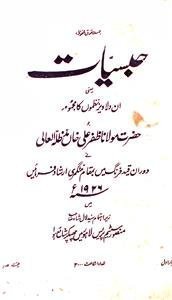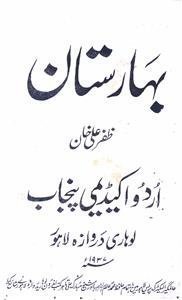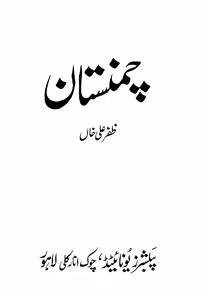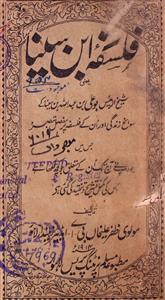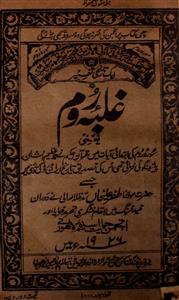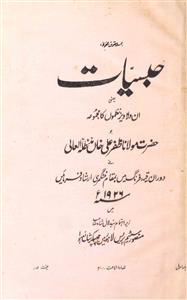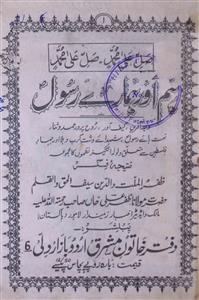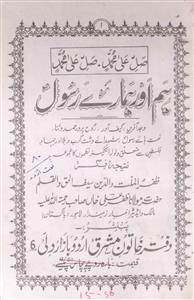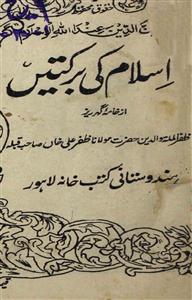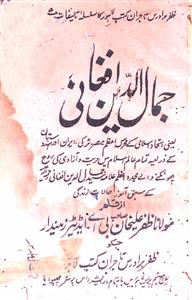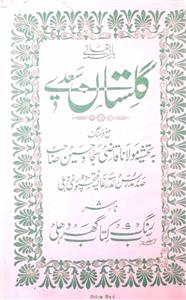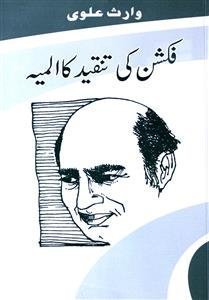 For any query/comment related to this ebook, please contact us at haidar.ali@rekhta.org
For any query/comment related to this ebook, please contact us at haidar.ali@rekhta.org
About The Book
زیر نظر کتاب "حبسیات" جیسے کہ نام سے ہی واضح ہے ان نظموں کا مجموعہ ہے جو مولانا ظفر علی خاں نے نے منٹگنری کے قید خانے میں لکھی تھیں ، مولانا ظفر علی خاں بارہ تیرہ سال قید وبند میں رہے تھے ۔انھوں نے اپنے قید کے زمانے میں جو نظمیں لکھیں ان میں انقلابی انداز ، فرنگیوں کی للکار اور جیل کی مشقت کا نقشہ کھینچا ہے۔ اس کے علاوہ اس کتاب میں حمد ، مناجات ، بزمیہ و رزمیہ اشعار ، اسلامی اخلاق، انسانی آزادی کا تصور وغیرہ جیسی نظمیں شامل ہیں۔ مولانا ظفر علی خان ایک پر جوش مسلمان، بے باک صحافی ، شعلہ بیان مقرر اور روادار شخصیت کے مالک انسان تھے ۔ان کی نظمیں مذہبی اور سیاسی نکتہ نظر سے بہترین کاوشیں کہلاتی ہیں۔
About The Author
Zafar Ali Khan was a poet, an editor, a political activist, and also a freedom fighter. Born in a small town called Koatmarta in the district of Sialkot in 1873, he received his early education in Karamabad but later joined Anglo Mohammedan College, Aligarh.
Zafar Ali Khan worked as the editor of the then famous daily called Zameendar. This newspaper had made a singular contribution in those days towards creating an acute consciousness regarding political, social, and cultural issues of the times. His political stance with respect to non-violence differed from that of Mahatama Gandhi. Clearly opposed to Gandhis’s policy of non-violence, he believed in direct confrontation with the British. An ardent supporter of Khilafat Movement, he also had to serve a term of five years in prison for his role in the freedom movement.
Poetry was a mode of socio-political resistance for Zafar Ali Khan. He engaged with the issues that impacted his times. Most of what he wrote represents contemporary history in literary terms. He died on November 27, 1956 in Lahore. His collections of poems include Baharistan, Nigaristan, and Chamanistan.
 For any query/comment related to this ebook, please contact us at haidar.ali@rekhta.org
For any query/comment related to this ebook, please contact us at haidar.ali@rekhta.org
